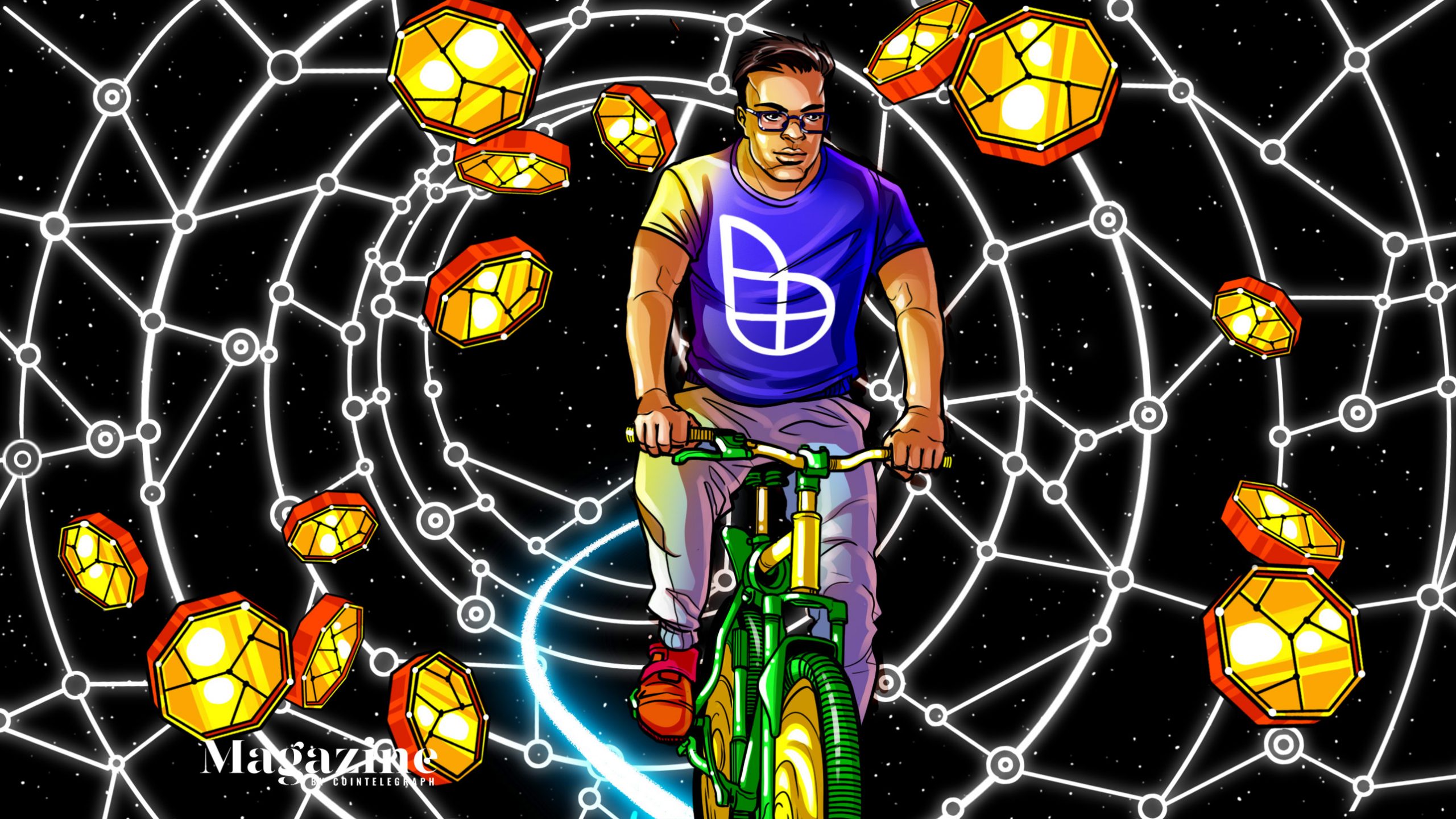A self-made millionaire by 16, Jonathan Manzi is no ordinary entrepreneur. Now 31, the past 15 years have seen him start an energy drink business but
A self-made millionaire by 16, Jonathan Manzi is no ordinary entrepreneur. Now 31, the past 15 years have seen him start an energy drink business but shutter it once he realized that there wasn‘t enough of the required kava-plant ingredient in the world to feed his ambitions of competing against Gatorade.
Becoming the youngest bar owner in San Francisco at 22, Manzi went on to create a robotic FedEx-like printing office with his company INK and later launch Beyond Protocol, a blockchain that styles itself as the “internet” for the Internet of Things (IoT).
Whether it’s a biometric suit that records the vital signs of Cage The Elephant’s lead singer or an electric vehicle charging system spreading across Slovenia, Manzi the magnificent continues to create opportunities for machines and devices to talk and interact via blockchain as they emerge from the old internet.
Teenage millionaire
Manzi grew up in a small town in Massachusetts “near Salem, where the witch trials happened many years ago.” His first foray into business came about while in high school in 2007 when he started an internet marketing company called Vintage Network based on ad serving technology. He says the challenge and joy of problem-solving “got me working 20 hour days to continue to build it.” Solving problems was not the only reward, as Manzi found himself a millionaire at a mere 16 years of age.
Of such wealth at a young age, Manzi explains that he largely compartmentalized his success, buying only a used BMW in order to go snowboarding in New Hampshire.

“There was a kind of a sense of ‘I‘m doing something different versus others, but I hope you know I still feel very connected to the others,” he explains of his experience of trying to live a normal teenage life as an internet millionaire. Eventually, he found ‘his people’ — entrepreneurs and hacker-types.
“We had a $5 million in revenue by the time I finished high school”
As he finished secondary education with a multi-million dollar business, Manzi felt that he had pigeonholed himself in “this kind of niche internet marketing world.” Wanting to move beyond its limits, he applied to Stanford believing that it was “where all the innovation was happening.” Predictably enough, he was accepted.
As Manzi started his management science and engineering and philosophy degree in 2009 in the depths of the Great Recession, he sold his stake in Vintage Network as it faced turbulence due to businesses cutting their marketing spend. He soon also decided to drop out of university because though he enjoyed the academic environment, he felt he “could probably read those books and do it on a different schedule” while continuing on his entrepreneurial journey.
The journey continues
One of the projects he dreamed up was an energy drink created with kava, a fruit indigenous to the South Pacific, which he says lowers the stress hormones in athletes, a claim supported by research Manzi participated in at Stanford’s Human Performance Lab.
However, Manzi discovered a roadblock after one of his schoolmates traveled to Tonga on a kava buying mission only to find out that the supply chain was limited in such a way that “if we were to have the success of Gatorade, it would be impossible nearly impossible to consistently supply” enough kava to keep stores stocked. To further complicate matters, the plant and its sale are heavily regulated in many countries.
Next, Manzi looked to get involved with a printing kiosk business in Slovenia which aimed to replace print shops. He worked with the company’s founder Denis Benic to bring the firm to Silicon Valley with Manzi taking a CEO role. Still, after spending three months in the capital Ljubljana trying to get the expansion deal through, the board rejected his plan.
Despite this, he’d convinced Benic, who soon left Slovenia, to live in Manzi’s apartment while building a new business called Ink, “an automated FedEx office,” together. “In the meantime, I bought a bar in San Francisco and I was the youngest bar owner at 22,” Manzi recalls of the few months before Benic arrived.

Manzi knew about and “philosophically celebrated” Bitcoin since 2012, having previously followed the “libertarian” eGold project while he was in high school. Despite this, he did not see it as an attractive investment and instead “backed into” blockchain technology through the cybersecurity needs of HP printers related to his printing business, in which he worked to make enterprise printers less hackable through a system of validating nodes and hardware signatures. Soon, he began to believe that blockchain was the answer to “the number one issue in Internet of Things (IoT) and will be over the next decade,” that is, the question of how…
cointelegraph.com
